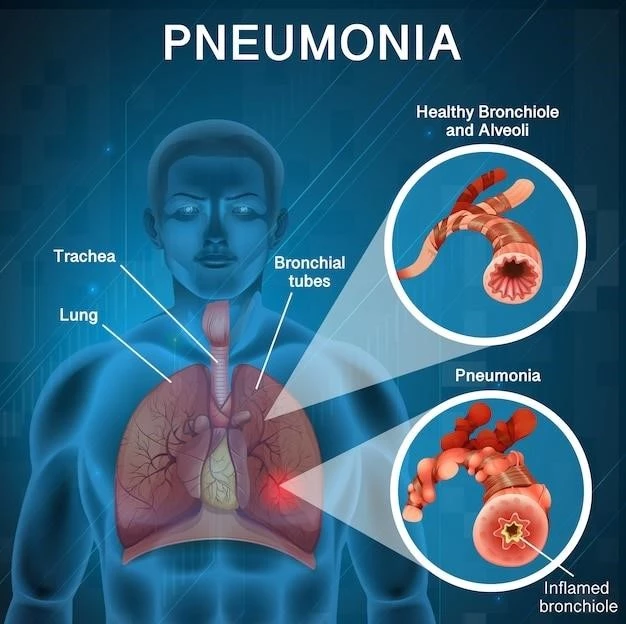Symptoms of Complex 5 Mitochondrial Respiratory ChainDeficiency vary․ Commonly include muscle weakness٫ fatigue٫ and metabolic acidosis․
Common Symptoms
Symptoms of Complex 5 Mitochondrial Respiratory Chain Deficiency commonly present as muscle weakness, fatigue, metabolic acidosis, and developmental delays․ Patients may also experience seizures, heart problems, and respiratory issues․ Early recognition of these symptoms is crucial for timely intervention and management․
Lesser-Known Symptoms
In addition to the common symptoms, lesser-known symptoms of Complex 5 Mitochondrial Respiratory Chain Deficiency may include vision problems, hearing loss, gastrointestinal issues, lactic acidosis, and intellectual disability․ These less recognizable symptoms can also hint at the presence of the condition and should not be overlooked during diagnostic evaluations․
Diagnostic Procedures
Diagnostic procedures for Complex 5 Mitochondrial Respiratory Chain Deficiency typically involve blood tests to assess enzyme activity, muscle biopsies for microscopic evaluation, imaging studies like MRI, and genetic testing to identify mutations in mitochondrial DNA or nuclear genes associated with the disorder․ A thorough evaluation combining these procedures helps in confirming the diagnosis․
Testing Techniques
Testing techniques for Complex 5 Mitochondrial Respiratory Chain Deficiency include biochemical assays to measure enzyme activities, electron transport chain analysis in muscle samples, next-generation sequencing for genetic mutations, and functional studies to assess mitochondrial complex functions․ These advanced techniques aid in confirming the diagnosis and understanding the underlying molecular defects․
Medication
Patients with Complex 5 Mitochondrial Respiratory Chain Deficiency may benefit from medications aimed at managing symptoms such as muscle weakness, fatigue, and metabolic abnormalities․ These medications can include coenzyme Q10 supplementation, riboflavin, antioxidants, and in some cases, symptomatic treatment for associated conditions like seizures or heart issues․ The choice of medication is determined based on individual patient needs and the specific symptoms present․
Therapeutic Approaches
Therapeutic approaches for Complex 5 Mitochondrial Respiratory Chain Deficiency focus on mitochondrial support and symptom management․ This may involve physical therapy to improve muscle strength, occupational therapy for daily living activities, dietary modifications, and lifestyle adjustments to optimize energy levels․ Additionally, some patients may benefit from respiratory support devices or cardiac monitoring as part of the therapeutic regimen; A multidisciplinary approach involving various healthcare professionals is essential for comprehensive care․
Current Studies
Ongoing research studies on Complex 5 Mitochondrial Respiratory Chain Deficiency are exploring novel treatment modalities, potential gene therapies, and understanding the molecular mechanisms underlying the condition․ Researchers are also investigating the role of mitochondrial dysfunction in other diseases and developing targeted interventions․ Collaborative efforts aim to enhance diagnostic tools and improve the management of this rare genetic disorder for better patient outcomes․

Technological Innovations
Technological innovations in the field of Complex 5 Mitochondrial Respiratory Chain Deficiency include advancements in genetic sequencing techniques for identifying mutations, high-resolution imaging modalities for detailed tissue analysis, and bioinformatics tools for data interpretation․ Furthermore, emerging technologies like CRISPR gene editing hold promise for potential gene correction strategies․ These innovations contribute to a deeper understanding of the disease mechanisms and aid in exploring personalized therapeutic approaches․
Prognostic Factors
Prognosis in Complex 5 Mitochondrial Respiratory Chain Deficiency is influenced by various factors such as the age of onset, severity of symptoms, response to treatment, and presence of comorbidities․ Timely diagnosis, multidisciplinary care, and close monitoring play crucial roles in determining the long-term outlook for individuals with this condition․ Research into prognostic markers continues to refine our understanding and improve patient care strategies․
Long-Term Management
Long-term management of Complex 5 Mitochondrial Respiratory Chain Deficiency involves comprehensive care strategies focused on symptom control, regular medical evaluations, monitoring for disease progression, and adapting treatments as needed․ Multidisciplinary coordination among healthcare providers, genetic counselors, and patient support groups is essential for addressing evolving needs and optimizing quality of life for individuals with this rare genetic disorder․
Inherited Mutations
Complex 5 Mitochondrial Respiratory Chain Deficiency is primarily caused by inherited mutations in genes encoding subunits of the ATP synthase complex․ These genetic defects impact ATP production in mitochondria٫ leading to mitochondrial dysfunction and a range of associated symptoms․ Understanding the specific mutations involved is crucial for accurate diagnosis and tailored management approaches in affected individuals․
Genetic Counseling
Genetic counseling for Complex 5 Mitochondrial Respiratory Chain Deficiency involves providing information on the inheritance pattern, genetic testing options, and family planning considerations․ Counselors support individuals and families in understanding the genetic basis of the condition, assessing the risk of passing it on to future generations, and making informed decisions regarding genetic testing and reproduction․ This personalized guidance helps individuals navigate complex genetic information and plan for the future accordingly․
Multidisciplinary Approach
The management of Complex 5 Mitochondrial Respiratory Chain Deficiency necessitates a coordinated multidisciplinary approach involving geneticists, metabolic specialists, neurologists, physical therapists, and other healthcare professionals․ This collaborative effort enables comprehensive care, individualized treatment plans, and ongoing support to address the complex medical, developmental, and psychosocial needs of patients with this rare mitochondrial disorder․
Individualized Care Plans
Individualized care plans for Complex 5 Mitochondrial Respiratory Chain Deficiency are tailored to each patient’s unique needs, considering the severity of symptoms, functional abilities, and response to treatments․ These plans incorporate a range of medical interventions, rehabilitation services, educational support, and psychosocial assistance․ By customizing care strategies, healthcare teams can optimize outcomes and enhance the quality of life for individuals grappling with this complex genetic disorder․
Dietary Guidelines
Dietary guidelines for Complex 5 Mitochondrial Respiratory Chain Deficiency emphasize a balanced diet rich in nutrients to support mitochondrial function․ Recommendations typically include adequate hydration, consumption of antioxidants, essential vitamins, and minerals, and moderation of sugar and processed foods․ Individual nutritional requirements may vary, and consultation with a registered dietitian can help personalize dietary plans to meet the specific needs of individuals with this rare genetic disorder․
Physical Activity Recommendations
Physical activity recommendations for Complex 5 Mitochondrial Respiratory Chain Deficiency focus on low-impact exercises tailored to individual capabilities․ Activities such as stretching, gentle strength training, and non-strenuous aerobic exercises can help maintain muscle function, flexibility, and overall well-being․ It is essential to consult with healthcare providers or physical therapists to establish a safe and effective exercise routine that supports physical health while considering the limitations posed by the condition․
